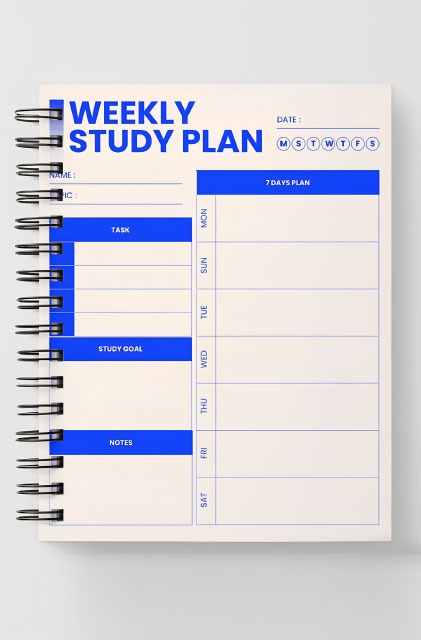Studying for the NMC CBT and OSCE exams? You’re about to complete two major steps in the UK nursing registration process 2024!
With Monse-Heart’s brain-based learning strategies and expert guidance, you’ll not only pass your exams — you’ll master UK healthcare standards with confidence.
In this complete guide, discover smart study plans, practical resources, and everything you need to succeed in the Test of Competence for international nurses.
This is Part 4 of our UK Nursing Licensure Blog Series:
- NMC Credential Verification | Step 1 Toward UK Nursing Licensure
- Test of Competence (ToC) for International Nurses | Step 2: The CBT Exam
- Test of Competence (ToC) for International Nurses | Step 3: OSCE & UK Visa Process
- Studying for the UK CBT & OSCE | Step 4: Your Guide to Passing with Confidence (You are here!)
- Completing NMC Registration | Step 5 Toward UK Nursing Licensure
At Monse-Heart, we specialize in brain-based learning techniques to help you retain information effectively, master exam techniques, and apply knowledge with confidence.
In this guide, you’ll discover:
- The best study strategies for both the CBT & OSCE
- How to structure your study plan (3-month Express Review vs. 6-month Intense Learning)
- Top study resources & materials to focus on
- How to prepare for OSCE clinical scenarios & UK healthcare protocols
- Common exam mistakes — and how to avoid them
Let’s dive in and set you up for success so you can PASS your CBT & OSCE on your first attempt!
Choosing the Right Study Plan
Before jumping into study strategies, select a study plan that fits your background, experience, and learning style.
This ensures efficient preparation and better retention of key concepts.

Express Review – 3-Month Study Plan
- Best for: Recent nursing graduates (2023 or later) who need a fast-track, structured approach to pass quickly and efficiently.
- Focus Areas: Exam techniques, high-yield topics, and practice question for rapid mastery.

Intense Learning – 6-Month Study Plan
- Best for: Nurses who graduated before 2023 or those who need a comprehensive refresher on essential nursing concepts.
- Focus Areas: In-depth knowledge building, clinical skill refinement, and step-by-step learning.
Pro Tip: If you’re unsure which plan to choose, opt for Intense Learning if you need more time, or Express Review if you feel confident with the basics!
The CBT (Computer-Based Test) is a multiple-choice exam designed to assess your theoretical nursing knowledge according to UK healthcare standards. To pass, you need to understand core clinical topics, patient safety protocols, and ethical nursing practices.
CBT Exam Breakdown
|
Section |
Questions |
Time Limit |
|---|---|---|
|
Part A: Numeracy |
15 |
30 minutes |
|
Part B: Clinical |
100 |
2 hours 30 min |
|
Total |
115 |
3 hours |
Key Topics You Need to Know:
- Numeracy Skills: Drug calculations, IV flow rates, and unit conversions.
- Patient Safety & Infection Control: Hand hygiene, PPE, and risk management.
- Clinical Decision-Making: Prioritizing care, managing deteriorating patients.
- Pharmacology & Medication Management: Side effects, contraindications, dosage calculations.
- NMC Code & Professionalism: Ethical practice, patient confidentiality, and accountability.
CBT Passing Score:
- The CBT does not have a fixed percentage passing score. Instead, it follows a criterion referenced scoring system, meaning you must meet a minimum competency threshold set by the NMC.
- The passing score may vary slightly depending on the difficulty level of the exam version you take.
Pro Tip: Focus on high-yield topics and take mock exams regularly to familiarize yourself with CBT-style questions and time constraints.
How to Study & Apply the NMC Code
The NMC Code outlines the professional standards that all UK nurses and midwives must follow. Both CBT and OSCE questions often assess your ability to apply the Code in real patient scenarios, so understanding its principles is crucial.
Key Areas You Must Know:
- Prioritizing Patient Care – The patient’s well-being always comes first.
- Professionalism & Accountability – Making safe, ethical decisions in complex situations.
- Communication & Consent – Ensuring patient understanding and respecting autonomy.
- Confidentiality & Data Protection – Following UK GDPR & patient confidentiality laws (Data Protection Act 2018).
- Safe Medication Management – Administering medications responsibly and reporting errors.
How to Study the NMC Code Effectively:
- Break it into sections – Focus on key principles one at a time.
- Use real-life scenarios – Apply the Code to patient care situations.
- Practice with mock questions – Many CBT & OSCE scenarios assess ethical decision-making.
- Relate it to UK policies – Understand how the Code connects to the NHS, Safeguarding Policies, and UK law.
- Official Resource: Download the NMC Code of Practice Guide (Essential for CBT & OSCE!) www.nmc.org.uk/code

Study Plan for the CBT
Step 1: Understand the Exam Blueprint
- Download and review the latest NMC Test of Competence (ToC) Blueprint, which details the topics covered in the CBT.
- Get the official NMC CBT Candidate Guide, which includes sample questions and exam structure insights.
Step 2: Master the Clinical & Numeracy Sections
- Clinical Knowledge: Study UK nursing protocols, professional standards, and patient safety procedures.
- Numeracy: Practice medication calculations, IV infusion rates, and unit conversions using nursing math tools.
Step 3: Take Full-Length Mock Tests
- Simulate the actual CBT exam environment to improve time management and accuracy.
- Analyze incorrect answers and understand the rationale behind each question.
Official CBT Study Resources:
- NMC Test of Competence Blueprint (CBT Syllabus)
- NMC CBT Candidate Guide (Includes Sample Questions)
- Want to practice with full-length CBT mock exams?
Join Monse-Heart’s CBT Prep Course!
Once you pass the CBT, you’re halfway there! Now, let’s shift focus to the OSCE—the practical, hands-on part of the Test of Competence. Unlike the CBT, which tests theoretical knowledge, the OSCE evaluates your real-world nursing skills in a clinical setting. Let’s dive into how to prepare for this crucial assessment!
OSCE Study Plan – How to Prepare for Clinical Scenarios
The OSCE (Objective Structured Clinical Examination) is designed to test your ability to apply nursing skills in a real-world healthcare setting. This means you need to focus on both clinical knowledge and hands-on practice.
What You’ll Be Tested On in the OSCE
The OSCE consists of 10 stations:
- 4 APIE Stations – Assessment, Planning, Implementation, Evaluation.
- 4 Clinical Skills Stations – Two sets of paired essential nursing skills.
- 2 Professional Values & Evidence-Based Practice Stations – Evaluates ethical decision making, professional accountability, and evidence-based nursing practice. Candidates must justify their clinical decisions using UK national guidelines and evidence-based frameworks, ensuring patient-centered and safe nursing care.
Key References for Justifying Decisions in the OSCE:
NICE Guidelines (National Institute for Health and Care Excellence) – Covers evidence-based best practices in UK healthcare. Visit NICE Guidelines
The Royal Marsden Manual of Clinical Nursing Procedures – The gold-standard reference for clinical nursing skills in the UK. Access The Royal Marsden Manual
NMC Code: Professional Standards of Practice and Behavior for Nurses & Midwives – Ethical and legal responsibilities of UK nurses. Read the NMC Code
NHS Clinical Guidelines & Frameworks – Official NHS protocols on patient safety, infection control, and evidence-based care. Browse NHS Guidelines

How to Study for the OSCE Effectively
1. Use Official OSCE Marking Criteria
- Download the NMC OSCE Candidate Guide to understand station scoring and competency expectations.
- Review the NMC OSCE Marking Criteria, which assesses candidates based on these three key areas:
Three Key Areas Assessed in the OSCE:
- Professional Values & Communication – Includes verbal and non-verbal communication, active listening, patient-centered care, and ethical decision-making.
- Clinical Skills & Accuracy – Assesses safe and competent execution of nursing procedures, medication administration, and hands-on patient care.
- Patient Safety & Infection Control – Focuses on adherence to UK infection prevention guidelines, safe practice, and minimizing risks to patients.
- Download the NMC OSCE Marking Guide.
2. Simulate Real Clinical Settings
- Use mock OSCE exams to practice under real conditions.
- Each OSCE station is strictly timed (10–15 minutes per station), so practice within these time constraints to improve speed and accuracy.
- Perform full assessments on a partner or mannequin to build confidence.
3. Master UK Clinical Guidelines
- Follow NICE Guidelines and Royal Marsden Manual to align with UK nursing protocols.
- Learn infection control, patient assessment techniques, and safe medication administration.
4. Practice with Role-Playing & Peer Feedback
- Train with study partners or mentors to enhance communication skills.
- Get feedback on body language, active listening, and professionalism.
- Want expert guidance? Preparing for the OSCE requires structured training and hands-on practice. Join Monse-Heart’s OSCE Prep Course to gain access to mock exams, one-on-one coaching, and real-world clinical simulations—so you can walk into your OSCE with confidence!
Download the NMC OSCE Candidate Guide here
Step 2: The Secret to Retaining Knowledge – Brain-Based Learning
Have you ever read something multiple times and still forgotten it? That’s because memorization is the hardest way to learn—and the easiest way to forget!
At Monse-Heart, we use brain-based learning techniques that make complex nursing concepts simple and memorable.
The Corpus Callosum Cross: Why It Works
Your brain has two hemispheres:
- Left Brain Handles logic, numbers, and words.
- Right Brain Handles creativity, emotions, and images.
When you engage both sides of your brain while studying, you retain information faster and longer.
How to Make Studying Easier & More Effective:
- Turn facts into stories – Connect nursing concepts to real-life patient cases.
- Use visuals & mnemonics – Images stick in your brain 60,000x faster than text!
- Engage emotions – If something makes you laugh, surprises you, or connects to a personal experience, you’ll never forget it.
- Want to experience brain-based learning in action? Join Monse-Heart’s CBT & OSCE Prep Course for expert-led strategies that make studying faster and easier!
Final Thoughts: Studying for the CBT & OSCE—Your Path to Success!
From completing your NMC credential verification to tackling the CBT and now preparing for the OSCE, you’ve made tremendous progress on your journey to becoming a UK Registered Nurse.
- Study Smarter, Not Harder—Here Are Your Final Tips: Practice under timed conditions to simulate real exam pressure
- Use the NMC’s official CBT & OSCE preparation materials
- Prioritize UK clinical standards, patient safety, and ethical practice
- Stay confident—self-belief is just as important as study hours!
Want Guided Help? Monse-Heart’s expert-led CBT & OSCE Prep Courses offer:
- Realistic mock exams & exam simulations
- Personalized coaching from UK-registered nurses
- Brain-based techniques to help you retain and apply what you learn
Ready to start? Enroll in Monse-Heart’s CBT & OSCE Prep Courses!
Want a quick and printable study reference?
Download our FREE 2-Page PDF on CBT & OSCE Study Guide (2024 Edition). Your go-to reference for study strategy, key topics, and exam structure.

Fill the form & Download PDF Guide!
Prefer Watching Instead of Reading?
- Watch our YouTube Video on Studying for the UK CBT & OSCE
- Subscribe & hit the bell for weekly nursing tutorials!
- We’re cheering for you and can’t wait to see you succeed as a UK RN!

Keep Going – You’re Almost There! After passing both exams, it’s time for your final milestone: NMC Registration. Our next blog will walk you through everything you need—from document submission to receiving your PIN number.
Join Monse-Heart’s UK CBT & OSCE/English Test preparation courses designed to help you pass with confidence.
Essential Internal Links (For Full Journey Support):
- Step 1: NMC Credential Verification
- Step 2: CBT Exam Full Guide
- Step 3: OSCE & UK Visa Process
- Step 4: Studying for the UK CBT & OSCE (YOU ARE HERE)
- Step 5: Completing NMC Registration
Recommended External Links (Trusted Sources):
NMC Test of Competence Blueprint www.nmc.org.uk
- NMC OSCE Candidate Guide
- NICE Guidelines (UK Clinical Standards)
- Royal Marsden Manual (Clinical Procedures)
Stay Informed: Future Updates to the NMC Code & ToC Process
The NMC has announced plans to review and update The Code and Revalidation Process starting in 2025, with new standards expected by 2027. While these updates won’t impact the current CBT and OSCE exams, we recommend checking the official NMC website periodically for the latest information on UK nurse registration.
Every great nursing journey begins with smart preparation —
take your first confident step today!
Follow Monse-Heart for More UK Nursing Guides:
Next Steps in Your Journey:
- Read Step 5 Blog: Completing NMC Registration | UK Nursing Licensure
- Watch Step 5 Video: Completing NMC Registration | UK Nursing Licensure
- Monse-Heart’s IELTS / OET Prep Course
- UK Nursing Prep Course CBT/OSCE

Frequently Asked Questions (FAQs) – OSCE & UK Visa Process
• It depends on your background and experience. If you’re a recent graduate, a 3-month Express Review may be enough. If you need a refresher, a 6-month Intensive Plan is recommended.
• Focus on official NMC materials, UK nursing guidelines, and practice exams to prepare effectively.
For the CBT:
• NMC Test of Competence Blueprint & Candidate Guide
• NICE Guidelines & NHS Clinical Frameworks
• Online CBT mock exams & numeracy practice questions
For the OSCE:
• NMC OSCE Candidate Guide & Marking Criteria
• The Royal Marsden Manual of Clinical Nursing Procedures
• OSCE mock exams & hands-on clinical practice
• Yes, the NMC allows candidates to take the CBT and OSCE in any order.
• However, most international nurses take the CBT first, as it’s often required for job offers and visa sponsorship before traveling to the UK for the OSCE
• CBT: You have 4 total attempts (1 initial + 3 retakes). If you don’t pass after the fourth attempt, you must restart the NMC process.
• OSCE: You can resit only the failed stations after 10 days (up to 2 attempts). If unsuccessful, you must wait 6 months and retake the full OSCE.
• Don’t worry—you’re not alone! Many candidates need more than one attempt, and that’s okay.
• If you don’t pass the CBT, you have 3 more chances (4 total attempts) before needing to restart the NMC process.
• If you don’t pass the OSCE, you can resit only the failed stations after 10 days (up to 2 attempts).
• If unsuccessful, you’ll need to wait 6 months before retaking the full OSCE—but don’t get discouraged! Many nurses pass on their second or third attempt with the right preparation and support.
Stay focused and keep practicing—success is within reach!
Disclaimer:
Monse-Heart Institute provides general educational support to assist international nurses preparing for the UK Test of Competence (CBT and OSCE exams). While we strive for accuracy, examination standards, guidelines, and visa policies may change. Candidates should always verify the latest information through official NMC and Pearson VUE resources. Monse-Heart is not affiliated with the Nursing and Midwifery Council (NMC), UK Home Office, Pearson VUE, or any official regulatory body.














